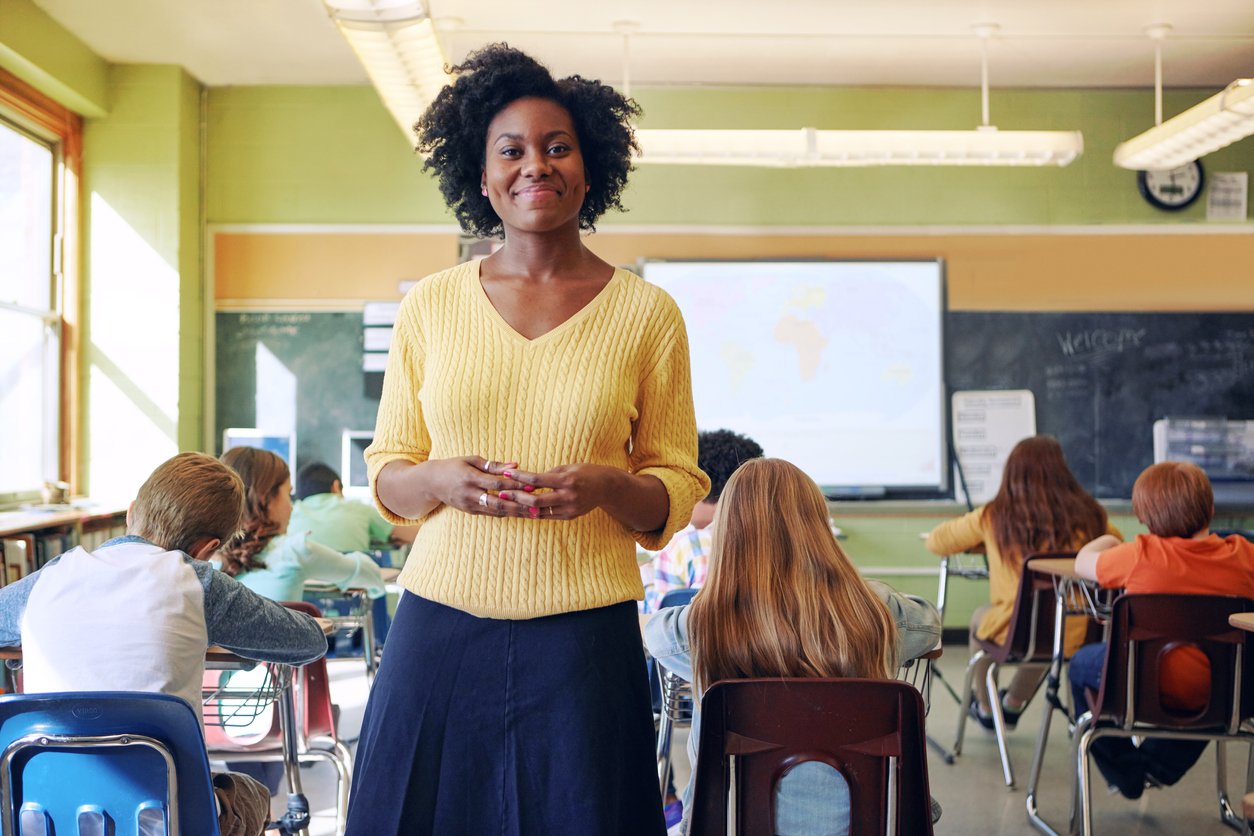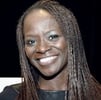 This past September, I had the privilege to speak with Dr. Dena Simmons during a Facing History webinar about how social-emotional learning can help us realize an anti-racist future. It was on the day that the grand jury in Louisville, KY made the decision not to charge anyone for the murder of Breonna Taylor, a 26-year-old unarmed African-American woman fatally shot in her apartment. Both Dr. Simmons and I felt the heaviness of this verdict, and the need to have an honest conversation about the times we are living in as Black women educators. Dr. Simmons has since written an article for ASCD in which she notes that Black women educators always “show up...because we know our work is critical to Black youth in white-dominated school systems...even if it comes at a cost. But we are exhausted.”
This past September, I had the privilege to speak with Dr. Dena Simmons during a Facing History webinar about how social-emotional learning can help us realize an anti-racist future. It was on the day that the grand jury in Louisville, KY made the decision not to charge anyone for the murder of Breonna Taylor, a 26-year-old unarmed African-American woman fatally shot in her apartment. Both Dr. Simmons and I felt the heaviness of this verdict, and the need to have an honest conversation about the times we are living in as Black women educators. Dr. Simmons has since written an article for ASCD in which she notes that Black women educators always “show up...because we know our work is critical to Black youth in white-dominated school systems...even if it comes at a cost. But we are exhausted.”
In a recent conversation, I had the opportunity to speak with a panel of four Black women educators based in the Greater Cleveland area about some of those costs, along with the unique joys and opportunities they are encountering in the field of education in this moment. Through a combined 125+ years of teaching experience, educators Kimberley Butler (KB), Gayle Gadison (GG), Krystle Williams (KW), and a 30-year educator (ED) based in Cleveland share their rich insights with the Facing History community.
PD: What are some of the joys you've encountered as Black women educators over the course of your careers? What have been some of the challenges?
KW: One of the joys is that I just love teaching kids who look like me… I tell the kids all the time, “I'm just a grown-up version of you. You can literally do what I'm doing. I'm you, 20 years later.” Some of the challenges actually don't have anything to do with the children; it's the adults. They don't always see me as their equal. There are a number of times where people from the district or people who work in my building just don't acknowledge me. It's like I'm invisible to them.
GG: For me, it’s having adopted children as a result of those classroom relationships and having students get me through some really rough times in my life...they've been there for me. Challenges have been the marginalization of my curricular area. Social Studies has become the stepchild when you talk about core curriculum. The challenges have also come through the emphasis on the social-emotional aspect of education...and the attempt to re-socialize black kids into the mold that mainstream America thinks that they should become.
ED: Some of the joy that I have felt in the classroom have mostly been those times when I was engaging with students. The joy of having a student come back and say, "You made a difference in my life 20 years ago." Those kinds of moments keep me going in every single day. As for challenges, the student population at my school is diverse but the staff, not so much. Some of the challenges, I think, are having to work harder, jump higher, sprint faster than anyone else in the building to be acknowledged and recognized for the gifts that I bring.
KB: At my current school, a great joy I have is opening the mindset of students who don't look like me and hopefully influencing them to expand their perspectives and deepen their intent to use their power and privilege to build a more just and equitable world. And when I see this in action, that's a great joy. In terms of challenges, some adults in my independent school environment treat me like the help. I also find that some students, parents, and colleagues are resistant to and maybe even intimidated by my presence in the building. When people get scared and withdraw from me, I find it more difficult to be effective in my role.
PD: How do you navigate the challenges inherent in teaching current events as racial violence—particularly targeting Black women—becomes more visible in the media?
KB: I am largely educating a population that is unfamiliar with our perspectives and so my priorities are often brutal honesty delivered as gently as possible. And my priorities are also really just exposing my students to literature, information, and realities that they have previously not been exposed to. I’m always striving to strike a balance when conveying the realities of how America operates and has always operated to a group of people—and sometimes parents—who want to believe in an alternate reality… I find myself walking a tightrope often but my priority is maintaining that balance… while still being honest with the young people who need to understand what to do with their power and privilege when they have the opportunity.
GG: I would like to find resources that examine the unaddressed historical trauma of Black women, and resources that celebrate the ways we have found to deal with that trauma. I want our trauma to be recognized because in this present-day climate, the feeling is that, somehow, this is all brand new. Instead, we need students to understand that this is the same old soup warmed over, but it just has not been recognized. Once we acknowledge it, then we can look at ourselves and celebrate the strength that we have because we have overcome that trauma ourselves. It's not just our white colleagues who don't know that; many of us Black women educators don't know it either. First we need to educate ourselves; then we can educate other folk.
PD: How would you describe what you need from colleagues and community members who want to be allies, co-conspirators, or disruptors in support of your work?
KW: When I think about my colleagues, the people I'm around in my district and my building, I actually need to start at the basic point of them believing me. I've had so many people tell me that my experiences with racism are not real. There are people who come to the school building and teach Black and brown children but then act like “I don't have to think about Krystle's experience because that's not my experience" but the thing is, they're teaching children who are going through the same things that I have gone through and they need to learn how to listen to those kids. When you don't feel seen as a child, when you don't feel safe to share your stories, it further perpetuates the cycle.
ED: I think that what I really need is for people to have a keener sense of what is going on because, many times, it seems like there are blinders. There's also this sense that because I teach in this particular school within this community, I do not have any racial biases in my life. I need you to step back and really take a deep look inside of who you are, where you come from, and recognize that you bring those things to the table. And you need to figure out how to move them off the table so that people are not being hurt because of what you do, what you say, and the way you engage with students.
KB: What I want from my colleagues and potential allies is I need white people to talk to white people...rather than recommending new movies to me that, for people who have never experienced racism or thought about it before, are like a revelation but not so much for me. I need white people to find other white people and communicate the things that they glean from us there… Share your learning with people who need that education.
GG: When I think about fellow Black women as colleagues, I would like for us to first stop, be very reflective, and really examine the notions that we have about our students, ourselves, and our communities. I think many of us have been so inundated with certain destructive notions that we have begun to believe them ourselves. I always think back to the documentary Ethnic Notions and the ideas it explores through the lens of history...like notions that “Blacks are ugly,” “Blacks are lazy,” and “Blacks are savages.” The notion is that instead of teaching our kids, we have to civilize our kids. I remember saying to one of my superiors one time, "You know what? We are not white missionaries. We are not here to civilize Johnny. We are here to teach Johnny and there’s a difference." There are so many educational policies informed by these notions that we have begun to internalize them.
The other thing that I would like to see happen is for us to begin to trust each other so that we will have the courage to speak up. There are so many times when I have been in meetings and something problematic has been said and everybody turns towards me but there are a whole lot of folks in the room who look like me. I don't have a problem challenging it but when it comes from one person over and over again, I don't know whether it might lose its effectiveness.
PD: What is your highest vision for education in your community and in our country?
KW: I want my students to have the same resources as kids in more affluent areas. I want them to have language before they leave our classrooms that allows them to speak to people about racism and acknowledge that they have been wronged. I didn't have the language to talk about what was happening to me when I got to college and I had to work through that as an adult.
GG: I would like for our students to graduate with the knowledge, the passion, and the confidence to save lives. I want them to be able to lift spirits, I want them to build movements, and I want them to ultimately save the world.
--
Facing History and Ourselves invites educators to use our Teaching Idea, Policing and the Legacy of Racial Injustice in the classroom.


